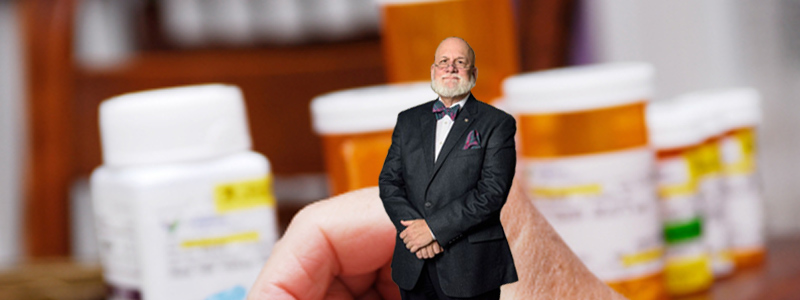Ask Larry:
Your Question: I’ve just been diagnosed with Laryngeal Reflux Disease. My ENT wants me to take Zantac, but I want to see if I can cure myself with treatments not involving acid reducers first.
I’ve cut out coffee, tea, alcohol, spicy foods, onions, garlic etc., and I plan to raise the head of my bed 4″. I just started taking DGL (Deglycyrrhizinated Licorice) and am aware of the blood pressure raising side effect of regular licorice.
On the label of the supplement I use (the label says “Enzymatic Therapy”) it says 3:1 Deglycyrrhizinated Licorice Root Extract. Each tablet is 760mg. And it says to take 2 tablets 20 minutes before a meal up, to 6 tablets a day.
Does that mean there is 253mg of glycyrrhizin left in each tablet? Should I be concerned that it will raise my blood pressure? Would Mastic gum be a better choice?
Larry’s Response: I applaud your effort to treat a condition without swallowing drugs to reduce your acid levels. It is important for you to understand that gastric acid is vital to good digestion and that chemically lowering acid levels can be dangerous and counterproductive.
Laryngeal Reflux Disease (another name for gastroesophageal reflux disease – GERD) is a name applied to a condition where gastric contents find their way to the laryngeal area, which isn’t always associated with the amount of acid in the stomach, but the fact that it is in a place where it shouldn’t be – the laryngeal area.
The question should be why stomach acid is in that area – and reverse it.
Think about a water bottle with a leak in it. Would it be better to fix the leak or just put less water in it? Treating acid reflux with acid blockers is like putting less water in the bottle. The leak – the cause of the reflux – is still there. When it comes to the human body, reducing acid for a short period of time can allow normal healing to occur. Most makers of acid blocking drugs warn that their product shouldn’t be used for more than a few weeks – yet people regularly take it every day for years.
Some people experience GERD because they don’t have enough stomach acid. During digestion the stomach churns the food to mix it with digestive juices. If there’s a deficit in acid the churning can push irritants upward where they damage sensitive tissue. The problem is with too little acid, not too much.
I cannot answer specifically about the product you asked about as I don’t have the actual packaging to reference. DGL isn’t a digestive enzyme so I’m unsure what is meant by 3:1 regarding this particular product.
DGL is known to raise blood pressure, but I don’t know enough about your health history to know if that would be a problem for you. Your doctor is probably a better resource.
Mastic gum is not absorbed and works inside the GI tract. It can make some symptoms better by coating the stomach. That isn’t usually a problem but it could interfere with the absorption of nutrients.
Yes, I understand I haven’t directly answered your questions about DGL or Mastic Gum but this is the best I can do with the scant knowledge I have about you, your medical history, or this current diagnosis. I understand how you want to stop the problem and I think you’re taking the best approach – no drugs.
Rather than blocking I’d suggest you consider increasing acid (lemon juice and/or apple cider vinegar) and adding digestive enzymes with each meal. Also, you should be taking 20 billion to 100 billion colony forming units of a good probiotic every day (on an empty stomach) and increase the amount of clean water you consume every day.
Best of luck.

